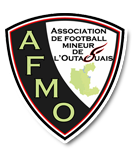Recent TV reports have raised awareness that football players are at high risk of brain concussion with some reports arguing that kids should not be allowed to hit until they reach 14 years old. These reports also showed that school football teams do not have the means or the knowledge to do what it takes to prevent concussion.
Wouldn’t be more prudent to stop your kid from playing football?
We first have to face the reality: the practice of any sport or activity – be hockey, rollerblading, skateboarding, cycling, or football – bear some risks. Statistics on this are scarce but those available suggest the likelihood your child has a brain concussion while playing football is 0.06 per cent, that is 6 chances for every 10,000 practices or games in he or she participates. This is not significantly different from hockey, whose likelihood of brain concussion is 0.05 per cent.
Being responsible for the organization of civil minor football in the Outaouais region, we cannot claim that we can eliminate all risks of injury or concussion. However, we are committed, as we have been since the beginning, in doing everything we can to minimize these risks and ensure all children who participate in our activities are safe.
We are proud to say that the Association de Football Mineur de l’Outaouais (AFMO) has always, since the very beginning, been at the leading edge in term of security. The Association ensures that all equipment, especially helmets, is continuously verified, refurbished, and renewed and has the latest safety features. On average, the Association spend $30,000 annually on new equipment. Moreover, in 2012, the AFMO enter into a contractual agreement with ShockBox to have sensors in our PeeWee player helmets to help us detect any serious hit to players’ head.
It is mandatory for all our coaches to attend training and information sessions on how to detect and prevent concussions. All our coaches teach players “safe hit” techniques. And our directives are clear . Any coach has to withdraw from the field any player who has received a hit to the head and is suspected to have a concussion. This player can only come back if he or she receives the written contentment of a doctor attesting he or she is ready to come back. Then the player will be brought back to action but only very gradually.
The AFMO has always been and will continue to be a leader in matter of safety in sport. We challenge any high-school team to do as much as we do in this area.
Finally, contrary to what some suggest, we believe it is important for kids to learn early how to hit. Again, statistics show that risks of concussions and injuries are higher at the high-school level than at college or university level because the players are less experienced and do not know how to hit properly. By starting early, around 7 to 9 years old, your child will learn good hitting techniques when the strength and the hitting power of your child and teammates, and their capacity to cause injuries, are still low. This is partly why we have created the Ligue de Football Mineur de l’Outaouais: to teach kids how to properly and safely hit other kids.
All that to say that the AFMO has several lengths in advance in concussion prevention
Executive Board
AFMO





